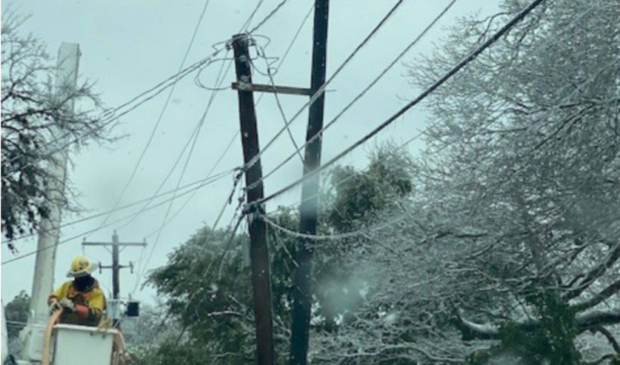
Photo by Austin Energy
Legislators respond to winter storm with new requirements for energy providers
Monday, July 19, 2021 by
Amy Smith The Electric Utility Commission received an update last week on legislative action related to electric utilities, with Senate Bill 3 serving as the omnibus response bill to Winter Storm Uri in mid-February.
SB 3, approved at the close of the regular session in May, enacts a number of new requirements for electric generation plants, transmission providers, water utilities, gas pipelines and gas supply chain facilities, as well as new demands for emergency preparedness operations.
An unsuccessful amendment to the bill sought to saddle renewable energy generators with increased costs, even though the largest decrease in generation capacity came from fossil fuel operations during the winter storm. The amendment was stripped out, but Gov. Greg Abbott later instructed the state’s Public Utility Commission to require solar and wind companies to pay for power when they’re unable to contribute to the state’s power grid.
Key provisions of the legislation include the establishment of an energy emergency alert system, and a requirement that utility providers defer collection of bills during extreme weather events and work with customers to set up pay schedules. The bill further requires the weatherization of all generation, transmission and natural gas plants and pipelines, and requires generators to request approval before conducting maintenance during peak summer and winter temperatures and calls for the creation of a state energy plan.
Another high-profile bill, SB 2, was touted as a reform measure to tighten and add more transparency to the operations of the Electric Reliability Council of Texas, although the bill assigns more political power to the state’s top elected officials. The measure reduces the number of ERCOT board seats from 16 to 11, three of whom would be chosen by a selection committee appointed by the governor, the lieutenant governor and House speaker. The committee would rely on an outside consultant to select the remaining eight members.
The Austin Monitor’s work is made possible by donations from the community. Though our reporting covers donors from time to time, we are careful to keep business and editorial efforts separate while maintaining transparency. A complete list of donors is available here, and our code of ethics is explained here.
You're a community leader
And we’re honored you look to us for serious, in-depth news. You know a strong community needs local and dedicated watchdog reporting. We’re here for you and that won’t change. Now will you take the powerful next step and support our nonprofit news organization?








